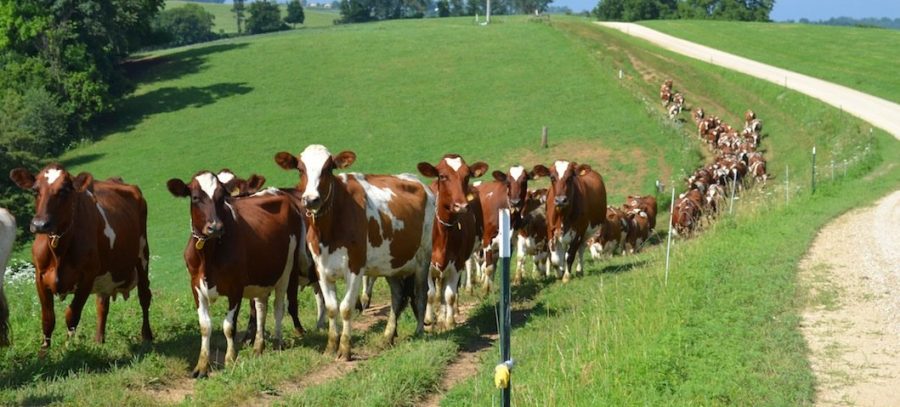Organic Lobby Brags about Influencing Massive Rewrite of Rules
Legal Mandate to Consult NOSB/Public Sidestepped
Comments are due by October 5 at 11:59 pm EDT at Regulations.gov.
USDA has presented to the public a massive and far-reaching rewrite of the regulations implementing the Organic Foods Production Act (OFPA). However, unlike the process by which the initial regulations were established in 2002, the National Organic Standards Board (NOSB) was only consulted on a portion of the elements in this draft rule. Public engagement was, thus, also limited. This is in conflict with the law.
The Law of Unintended Consequences
Although the current draft rule (“Strengthening Organic Enforcement”) includes many meritorious elements, a number of them have not been discussed publicly. Given the narrow time window for public comments, concurrent with stakeholders and public interest groups working on formal comments for the upcoming NOSB meeting, and taking into account the impact this pandemic has had on the productivity of many organizations, wide discussion within the organic community has been severely limited.
Thus, we respectfully request an extension to allow an opportunity for the organic community to collaborate on this proposal prior to proceeding to final rulemaking.
In the meantime, we contend that many aspects of this rule can be implemented without formal rulemaking. In addition, some of the new requirements, especially relating to the importation of fraudulent organic commodities and ingredients, may be addressed by more general enforcement authorities.
These elements should be limited to avenues where the National Organic Program does not currently believe they have the legal authority to act. However, we would like to emphasize that the current resources available to NOP and other federal agencies were sufficient to compel the decertification or voluntary surrender, presumably under duress, of 75% of certified operations in the Black Sea region after greater scrutiny—scrutiny that only occurred after wide news coverage of fraud, gross embarrassment to USDA, and damage to the organic label—despite previous assurances by NOP that oversight was adequate.
Beyond Pesticides/OrganicEye, in general, supports the detailed comments submitted by the National Organic Coalition (NOC). Furthermore, we also support the comments related to strengthening oversight on imports submitted by the Organic Farmers Agency for Relationship Marketing (OFARM).
In addition, OrganicEye, an investigative arm of Beyond Pesticides, is making the following points of emphasis:
- We concur with NOC that there is no reason for a 10-day delay in communicating the electronic certificates. They are electronic!
- This rule is massive and, despite its many meritorious elements, adds, in aggregate, tremendous additional regulatory burdens. As such, we believe it deserves additional time to be thoroughly and thoughtfully evaluated.
- We suggest the time has come to look at risk-based oversight of certified operations rather than the “organic regulatory theater” which puts honest farmers through the ringer every year with inspections and audits while massive fraud is being simultaneously perpetrated by serial bad actors.
It should be noted that the IRS does not audit every taxpayer every year. But holding the hammer of unexpected and comprehensive audits has a profound impact.
- Furthermore, it has become standard practice for NOP to negotiate settlements with alleged perpetrators, leaving some in business and without substantive penalties. We contend that willful violators need to be prosecuted to the full extent of the law as a deterrent. New rules, without the will to impose penalties, will be toothless.
- And finally, we recommend USDA assert control by mandating strict criterion for residue testing and unannounced inspections, including assisting in the selection of audit targets based, in part, on complaints and other reports from the public. We feel the draft rule calls for far too much discretion by certifiers with inherent conflicts of interest.
For fuller background, please consult the formal Beyond Pesticides/OrganicEye comments to USDA.
How to submit comments:
- Click on the link to the Regulations.gov comment page.
- Enter your comment and identifying information. You may copy, paste, and edit the points below. If you have questions, please view our video tutorial for step-by-step guidance.
- Press the “Submit” button.
Please include:
- A description of yourself and your qualification as a stakeholder in the organic farming movement (eater, retailer, farmer, or business operator).
- Please emphasize that more time is needed to engage the public and members of the NOSB, as is required by law. These changes are too sweeping to be rushed through.
- Feel free to cut-and-paste from the bullet points above, or from the full Beyond Pesticides/OrganicEye comments for additional areas of emphasis.
Your voice carries weight! Thank you for making the effort to engage in the organic rulemaking process.
Don’t forget to submit your comments by Monday, October 5 at 11:59 pm EDT.

